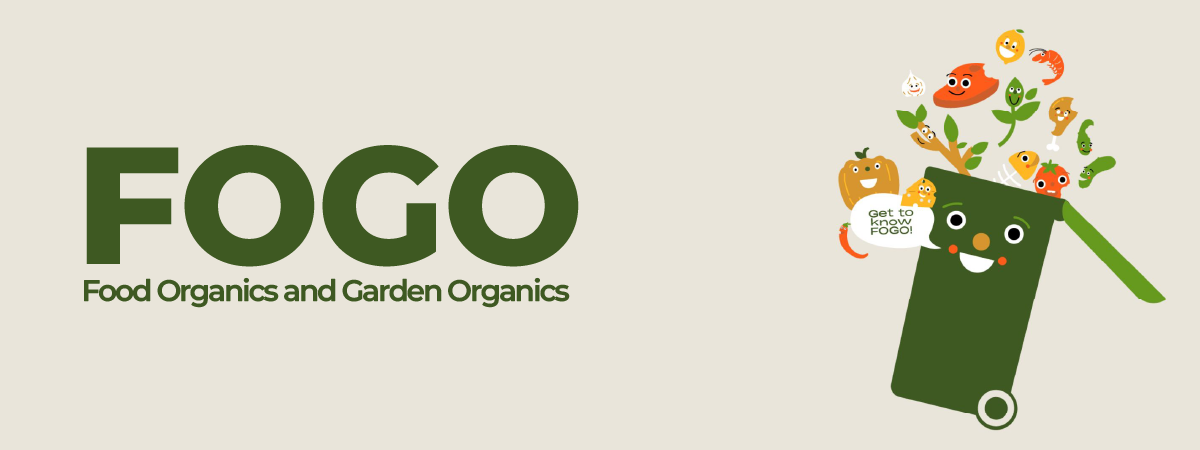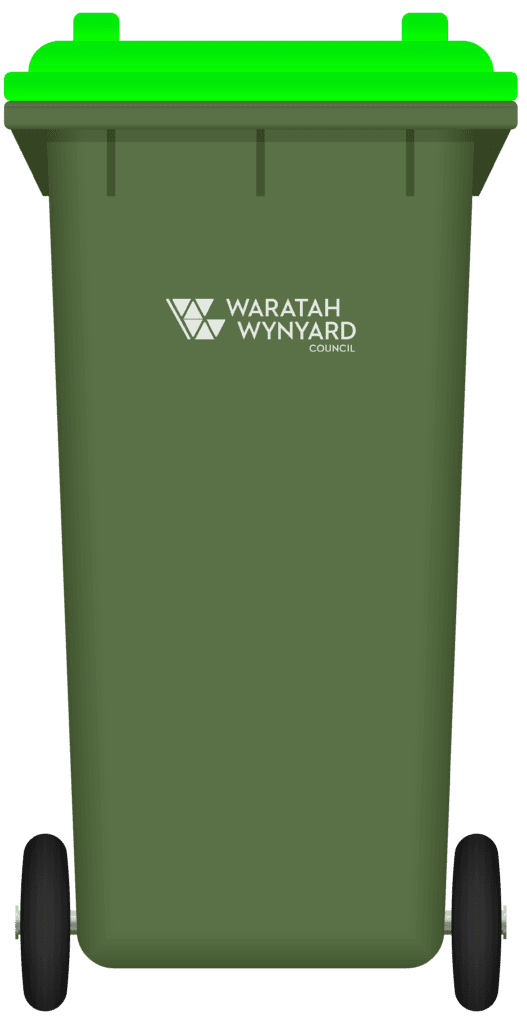
Food Organics and Garden Organics (FOGO) a fortnightly kerbside collection service, coming to our community, for food and garden waste. FOGO is collected and processed into compost to be reused on farms, nurseries, parks and gardens, instead of going to landfill.
From 5th of July 2024 the weekly waste collection service will change to fortnightly with the rollout of the new FOGO collection service. This will provide residents with a three-bin system (FOGO, Recycling and Waste), collected fortnightly.
This service is being implemented across North-West Coast Councils under a regional contract managed by Dulverton Waste Management.

About 40% of all the general waste produced by our households is food and garden waste. When this waste is placed in the general waste bin and sent to landfill, it degrades and generates greenhouse gases such as methane which has an atmospheric environmental impact.
By introducing FOGO to our community, we are making beneficial changes for environmental sustainability. Overall this change has a moderate impact on the cost of waste management services. FOGO is a key focus of our Waste and Resource Recovery Strategy.
Households will be provided with a 240L lime green-lidded wheelie bin between mid-May to mid-June ahead of the service commencing the week of the 5th of July 2024. Please do not use your bin until the collection starts in July.
It starts in your kitchen and garden. You can use any container to collect your food scraps from the kitchen and tip them into the lime green lidded FOGO bin. If you have a garden or indoor plants, leaves, flowers and prunings, from these can also be placed into the FOGO bin. Ensure to maintain general hygiene by cleaning out your scraps container and washing your hands when handling.
The FOGO bin is then collected as part of the fortnightly waste collection service, similar to the current recycling collection. From there, FOGO waste is taken to a processing facility to begin the treatment and testing to create healthy composting that will be used around the local community and farms.
You can put food and organic garden waste in your FOGO bin. Food waste includes vegetable peelings, fruit, cooked food, leftovers, meat and bones, seafood waste, dairy and citrus. Together with your food waste, your garden organics such as lawn clippings, weeds, vegie patch waste and small branches can also be added to the bin.


Our A-Z guide of what can go into your FOGO bin will be available in the coming months as the bins are delivered.
PLEASE DO NOT put any plastics or biodegradable plastics, plastic bags, cling wrap, glass, tins and cans, foil, Tetrapaks, nappies, treated timber, gravel, rocks or building material into your FOGO bin.
Fireplace ash can be placed on the garden to lift the carbon content of soil.
Separate food waste from containers so only food waste goes in FOGO. If the container is recyclable, then give it a rinse and it can go into the yellow/recycling bin.
Charges will be set by each Council across the North West and provided in their budget papers. The Councils have worked together to create the best value for the bin collection service. For most Councils the cost will be minimised with:
The FOGO process provides a more cost effective service than landfill, which in turn lowers costs for rate payers in the community. It also provides an opportunity to assess how much waste we produce and where we can reduce this by changing our buying habits.
It’s no lie that waste will smell at times, just like your general waste bin may do now. Below are tips that you can use to reduce this:
The FOGO, Recycling and Waste bins will be collected fortnightly on an alternating schedule, which will be provided in the coming weeks.
Any questions, comments or concerns about the service contact Dulverton Waste Management.
© Waratah-Wynyard Council 2024